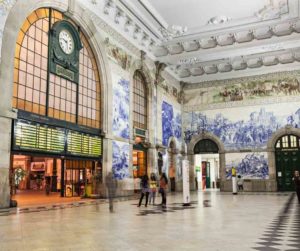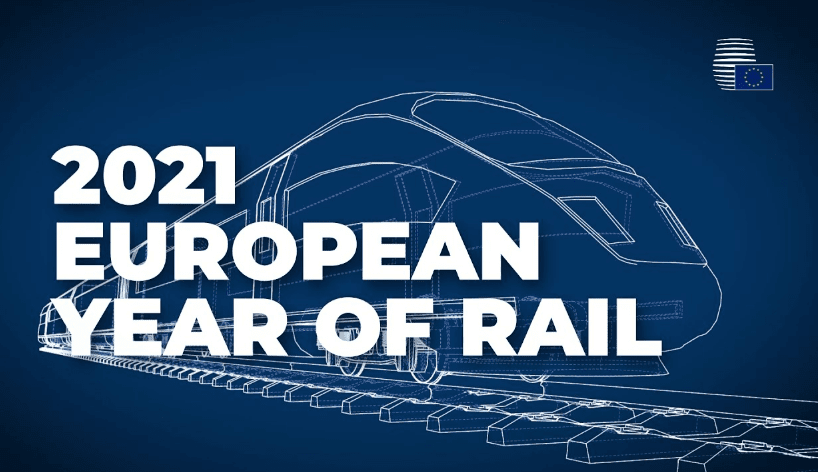2021 European Year of Railways by the European Parliament and the European Council
After a challenging 2020, the European Parliament and the Council have declared 2021 as the European Year of Rail.
The year will be characterized by a series of initiatives such as dedicated events, exhibitions, and campaigns to promote railways as the most sustainable and innovative mode of transportation, as well as to support the achievement of the 2050 climate goals highlighted in the European Green Deal.
The European Year of Rail 2021 will spotlight the numerous advantages of railway transportation through dedicated events, exhibitions, and promotional campaigns, reaching our citizens, particularly the youth,” commented Commissioner for Transport Adina Vălean. “I would like to thank the European Parliament and the Council for their support of this initiative, which is part of our European Green Deal.”

European Year of Rail 2021.
How was the European Year of Rail born?
Before the provisional agreement reached by the Parliament and the Council, the proposal for the European Year of Rail went through all the stages of the European Union’s bureaucratic system.
The Commission originally proposed it on March 4, with Commissioner for Transport Adina Vălean saying, “There is no doubt that rail transport brings enormous benefits in most sectors: sustainability, safety, even speed, once organized and designed according to 21st-century principles.”
“But there is also something deeper in railways: they connect the EU not only physically,” she added. “The European Year of Rail is not a random event. It comes at the right time, when the EU needs this kind of collective commitment.”
By mid-October, the proposal for the European Year of Rail was accepted by the European Parliament’s Committee on Transport and Tourism (TRAN), which applauded the initiative’s goal of increasing the attractiveness of railways through targeted events.
The railway, therefore, needs a further push to become more attractive to passengers and businesses as a means of transportation that satisfies both their daily needs and long-distance mobility,” reads the proposal. Reaching out to citizens, beyond the railway sector, through dedicated events and communication campaigns will convince a greater number of people and businesses to use the railway,” the proposal states.
Reducing emissions on European railways
In December 2019, the European Commission launched the European Green Deal, a set of policies to help Europe become the world’s first climate-neutral continent by 2050. As part of the agreement, the transport sector, which accounts for a quarter of European greenhouse gases, has agreed to reduce its emissions by 90%.
To help the sector achieve its climate goals, the Commission has worked to promote the role of railways in the future European mobility system, focusing on the environmental sustainability and energy efficiency of railways.
Railways are widely considered the most climate-friendly mode of transport, with a continuous reduction in CO2 emissions since 1990. As reported by the European Commission, railways across the EU-28 produced 0.5% of emissions in 2017, compared to 72% from road transport and 13.9% from air transport.
Initiatives such as the European Year of Rail are expected to help the EU achieve its climate goals.
As part of the European Year of Rail, the European Council has tasked the Commission to initiate a feasibility study for the creation of a brand to promote goods transported by rail. According to experts, the brand will encourage businesses to shift to rail, promoting the commission’s plan to transfer 75% of internal freight transport from roads and aviation to railways and waterways by 2050.
The European Year of Rail will also help the sector regain its attractiveness and passenger numbers after the collapse due to the Covid-19 pandemic.
“Our ambition is to go beyond celebrating the railway as an environmentally friendly mode of transportation and an important cultural asset in Europe, we also want to stimulate meaningful discussions on how we can increase the number of passengers and goods traveling by train, in line with our climate ambitions. – Adina Vălean



